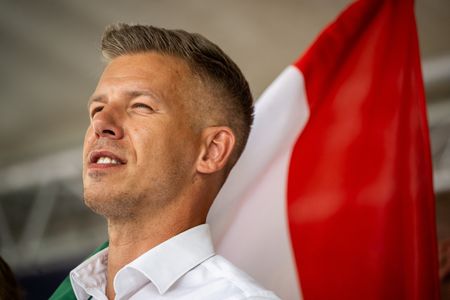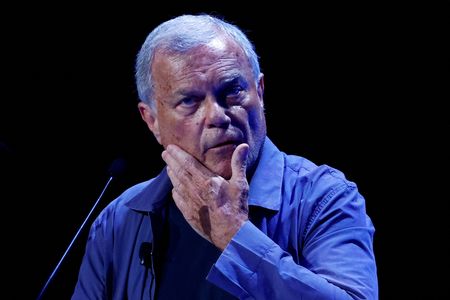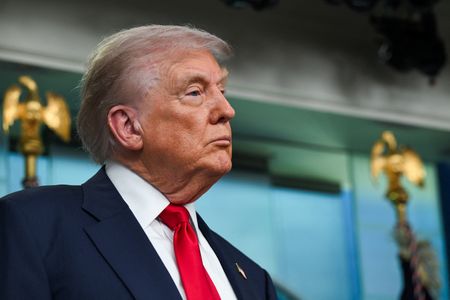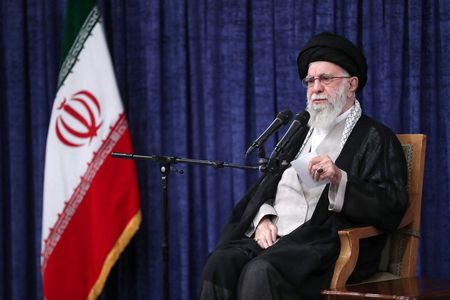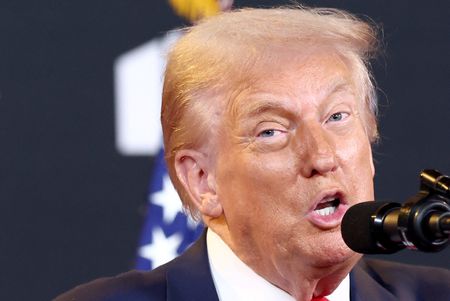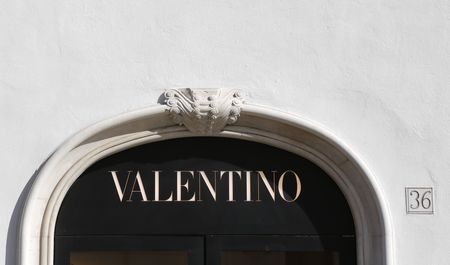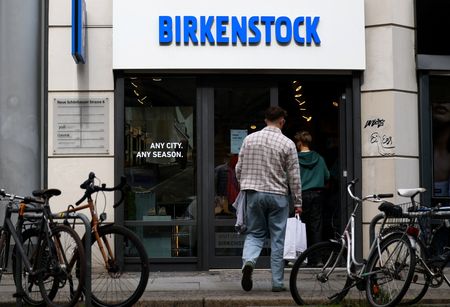BUDAPEST (Reuters) -Opposition leader Peter Magyar accused Russia on Thursday of interfering in Hungarian politics after Russia’s Foreign Intelligence Service (SVR) issued a statement alleging that the European Commission was considering “regime change in Budapest”.
In power since 2010, Hungarian Prime Minister Viktor Orban has been criticised by some fellow EU leaders for his government’s warm ties with Moscow and opposition to military aid for Ukraine against Russia’s invasion, while his cabinet is struggling to revive the economy from an inflationary shock.
Some political analysts say that with Orban’s right-wing Fidesz trailing Magyar’s centre-right Tisza Party in polls, the veteran nationalist faces what could be the toughest challenge to his long rule at a parliamentary election due next spring.
The SVR statement, published on Wednesday, said that based on information it had received, the European Commission viewed the current leadership of Hungary as an increasingly serious obstacle to a “united Europe”.
Last October Orban, who has strongly opposed EU efforts to ban Russian energy imports, also alleged that the EU executive was trying to overthrow his government and impose a “puppet” administration on Budapest.
“Brussels is furious about Budapest’s attempts to pursue an independent policy and influence collective decision-making, especially regarding Russia and Ukraine,” the SVR said, describing Magyar as being loyal to “globalist elites”.
Magyar said Russia was trying to intervene directly to sway voters in Hungary, which is also a member of the NATO military alliance but under Orban has refused to send weapons to neighbouring Ukraine.
“Yesterday an operation was officially launched against Hungary. A foreign, non-allied country is actively intervening in the domestic matters of our country,” Magyar said on Facebook.
Foreign Minister Peter Szijjarto said the SVR statement contained “nothing new,” repeating eurosceptic Orban’s previous allegations of EU leaders plotting to oust him.
Orban, who has maintained close ties with Russian President Vladimir Putin even after Russia’s 2022 invasion of Ukraine, became the only EU leader on Monday not to endorse a joint statement saying Ukraine should have the freedom to decide its future.
Ahead of a summit in Alaska between U.S. President Donald Trump and Putin on Friday, Orban also said Russia had won the war in Ukraine.
(Reporting by Gergely Szakacs; editing by Mark Heinrich)

